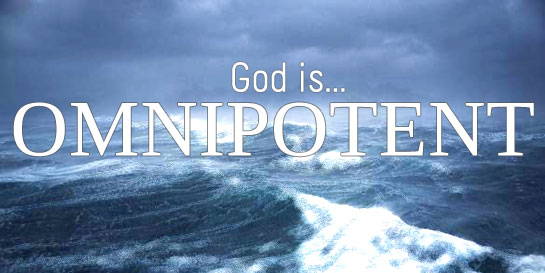I have always been an avid weightlifter. In high school, I did not take up many of the popular sports. I was too short for basketball, too slow for football, and too uncoordinated for baseball. However, I found something that I enjoyed and found great success in doing: weightlifting. Weightlifting is not a sport where one competes against another person. Rather, it is a sport where one competes against oneself. A person tests their limits. Through the years, I have had great success with the hobby. In my early thirties, I posted a personal best in the bench press lifting 555 pounds and a squat well over 800 pounds. This was something I thought was pretty good until I watched a video of a man named Scot Mendelson posting the world record bench press at just over 1,000 pounds.

I have kept pushing myself through the years. However, digestive problems and other medical issues not only made me realize my limitations, but also took away the ability to post some of the numbers that I once achieved. I realized something that I did not want to accept—I have limited power. While we as human beings will always have our limitations, God does not.
God is known to have the attribute of “omnipotence” (omni, Latin for all; potent, Latin for power). Omnipotence means “all powerful” or “unlimited power.” God is known to be omnipotent in the Bible, partially due to his names. God is called in the Old Testament El Shaddai which means “the Almighty.” In the New Testament God is called the pantokrator which means “almighty” or “all powerful.” Norman Geisler rightly defines omnipotence as the ability in “that God can do whatever is possible to do. Or, God can do what is not impossible to do.”[1] Even still, we must understand that even God cannot do three things:
- Act in a way that is contrary to his nature (i.e. he cannot lie, do what is evil—Titus 1:2).
- Act in a way that impedes human freedom (he can coerce, persuade, but there must be an aspect of human response, e.g. Matt. 23:37). This does not mean that God could not override human freedom. However, should God override human freedom, human freedom would be lost.
- Act in a way that is logically impossible (i.e. create a married bachelor, a squared circle, swear by a name that is higher than his own, etc. Heb. 6:13).
In Jeremiah chapter 31, we learn that Jeremiah was told to buy a field in a time of great uncertainty. Jeremiah bought the field and gave the deed to Baruch, his associate. However, Jeremiah had doubts as to whether he should have purchased the field. But, Jeremiah prays in chapter 32 and finds strength in the omnipotence of God. So, what does this omnipotence of God mean to you? Let’s look at five areas that God’s power affects the life of the believer.
- God’s power exceeds that of the power found in creation. God created everything that exists. Therefore, God is able to work within the bounds of nature and outside the bounds of nature. God can do the miraculous at his will. Creation does not restrain God, rather creation is restrained by God as God creates and sustains all that exists. That being said, nothing is too powerful for God.
- God’s power is extended to his children. We are told that we can move mountains with just a morsel of faith (Mt. 17:20). Great power is found in prayer. Because God has the power, not us. If we try to work without prayer, we are merely working by our own power. If we operate by prayer, we are working by the power of God.
- God’s power has been and is used to offer every means possible for a person to be saved. God doesn’t desire for anyone to be condemned to hell (2 Peter 3:9). Jesus did not come to condemn, but to save (John 3:16-17). Thus, understand, salvation is not a work that you have done. Salvation is not a work that is achieved. Rather, salvation is a work received as it is a work that God has done. Because of God’s great power, he has made a way for you to live with him for all eternity.
- God’s power means that he is the ultimate authority. God’s grant of forgiveness is irrevocable. Jesus said, “I give them eternal life, and they will never perish, and no one will snatch them out of my hand” (John 10:28).[2] If God deems you forgiven, then no one else can say otherwise. If you enter into eternity without Christ, then God will rule you guilty. Understand, there is no court superior to God. No Supreme Court can override the edict of God. God is the ultimate authority. The doors God opens, no one can shut. And, the doors God shuts, no one can open. If you are forgiven, you have an eternal promise of eternal life. God cannot lie.
- God’s power along with God’s incapacity to lie means that victory is certain! Just because God hasn’t judged the world yet, doesn’t mean that he won’t. God is allowing time for more people to come to salvation. But understand, victory is as certain as the words before your eyes. As Paul says, “If God is for us, who can be against us” (Romans 8:31). Victory is certain. Evil will be defeated. So, stop worrying!
Because God is omnipotent and is also all loving (omnibenevolent), this means that the believer serves a God of possibilities. Where our power is limited, God’s power is limitless. Are you depending on your own power or the power of God today?
© February 16, 2016. Brian Chilton.
Source Cited
Geisler, Norman. Systematic Theology: In One Volume. Minneapolis: Bethany House, 2011.
Notes
[1] Norman Geisler, Systematic Theology: In One Volume. (Minneapolis: Bethany House, 2011), 487.
[2] Unless otherwise noted, all Scripture comes from the English Standard Version (Wheaton: Crossway, 2001).






Reblogged this on Talmidimblogging.
Reblogged this on Talmidimblogging.